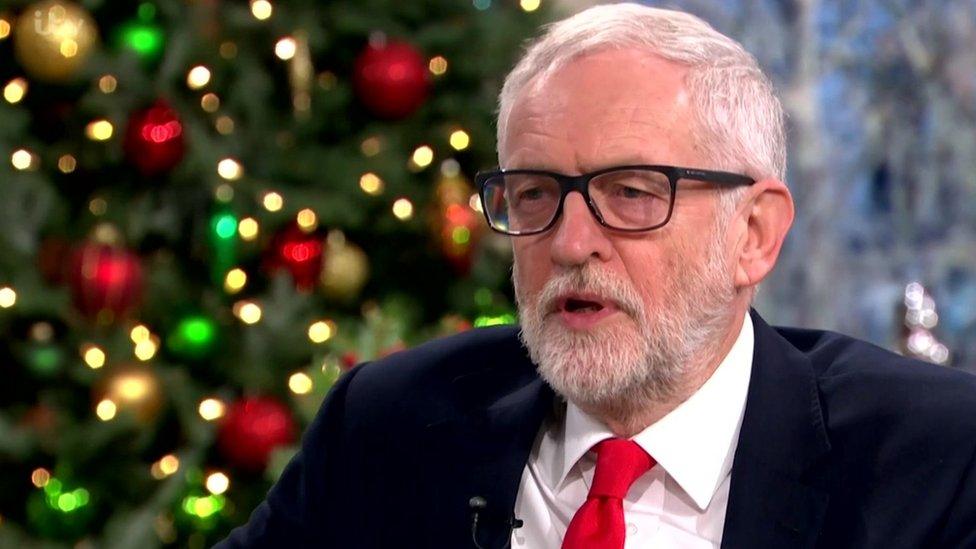General election 2019: 'Faith is the number one thing influencing my vote'
- Published
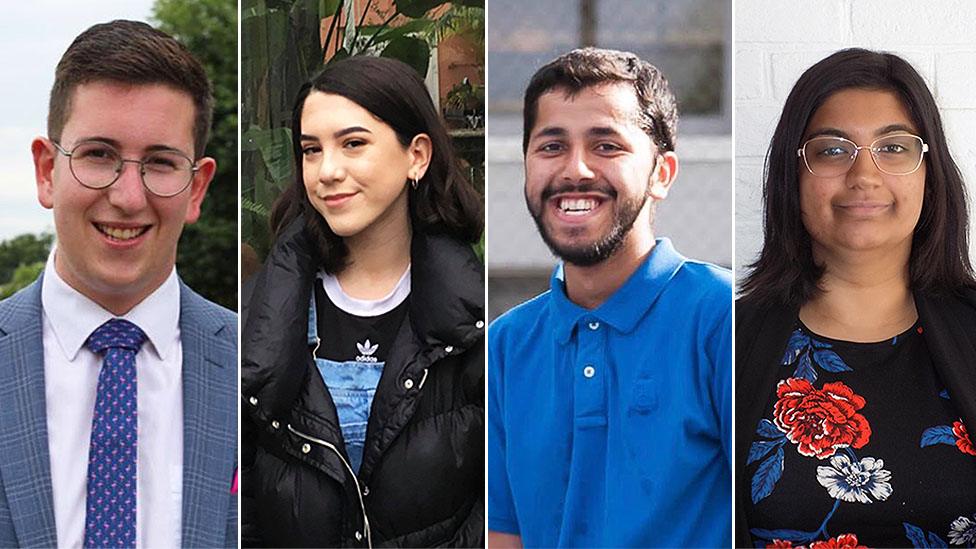
Faith and politics.
Two things you've probably heard a fair bit about in this election period.
From claims of anti-Semitism and Islamophobia within the biggest parties, to accusations that religion is influencing policies.
"Faith is deciding my vote," Josh Collins tells Radio 1 Newsbeat.
Josh is an 18-year-old student at the University of Nottingham - voting in his first election. He's Jewish and says he would like to vote for Labour, but can't because of what he calls, "Labour's anti-Semitism crisis".
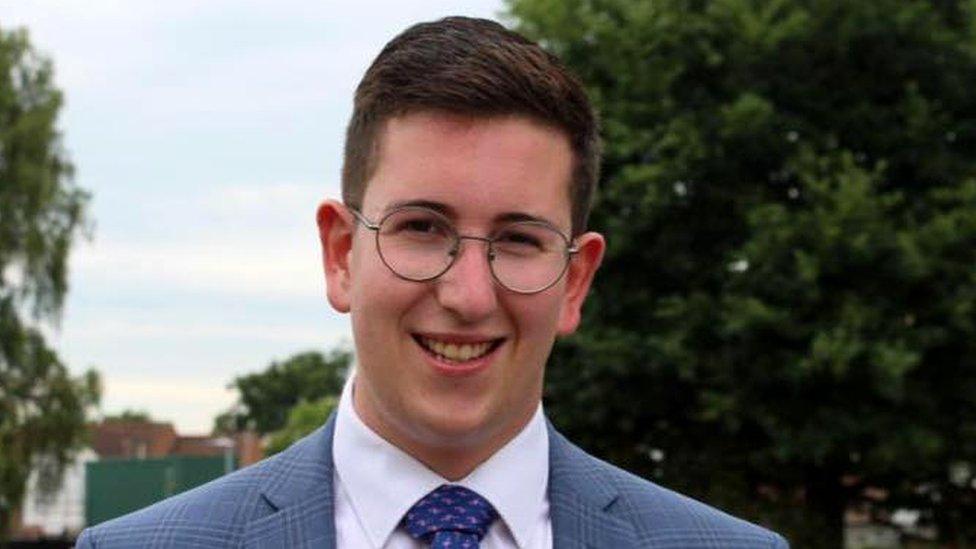
Josh fears things will become more toxic if Jeremy Corbyn becomes PM
There are lots of Labour policies that impress Josh like their environmental commitments and pledge to end tuition fees.
But he criticises Labour leader Jeremy Corbyn for his handling of anti-Semitism, saying he's been too slow to stamp the problem out of the party.
Labour are "campaigning for him to get into Number 10, and as a Jewish person, I'd be genuinely scared if he got anywhere near the door".
"I think, even though I don't want it to be, faith is the number one thing which is influencing my vote. I don't want a tolerance of abuse against religious minorities."
But not everyone shares the same fear.
Alice Brostoff, 18, is also Jewish, but unlike Josh, will be voting for Labour.
"I feel like the Labour Party are the people that represent my views in a way I would want. No other party does that."
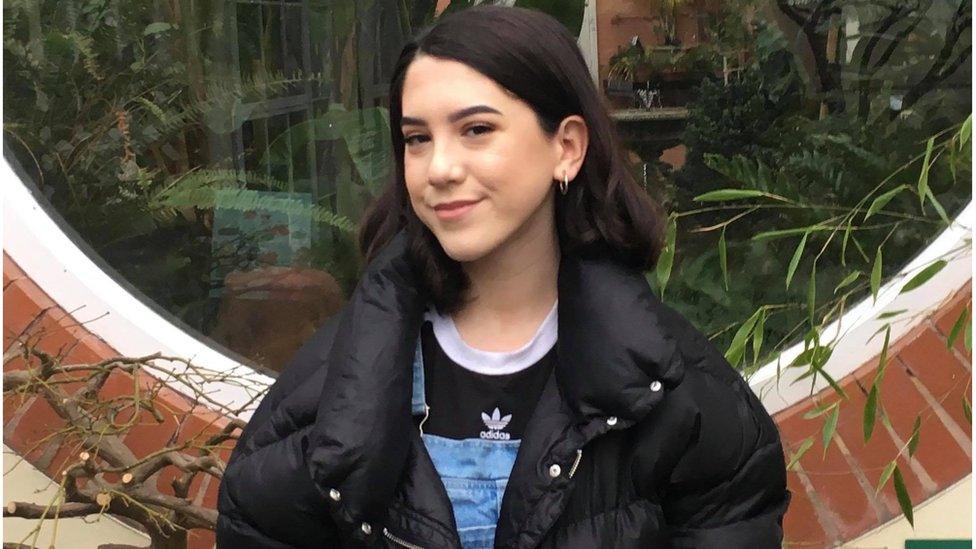
Alice is a first-time voter and says she's "excited to vote for Labour"
The issues which Alice feels passionate about include the NHS and austerity.
She won't be voting for the Conservatives because she says they have "handled Brexit really badly - though I don't believe there should be another [referendum on the EU]."
The University of Sheffield student thinks that anti-Semitism "is a big thing" but says "it's not isolated to the Labour Party".
And she doesn't think faith will ever affect the way she votes, for her it's a political issue rather than anything to do with her identity.
Jeremy Corbyn has apologised for incidents of anti-Semitism in the Labour party on several occasions and said anti-Jewish racism was "vile and wrong".
Jeremy Corbyn apologises over anti-Semitism on This Morning
'Never been so bad'
For Bilal Malik, a 24-year-old Muslim, faith "will play a massive role" in this election. He says he can't vote for the Conservatives because of their alleged issue with Islamophobia.
Bilal says he's frustrated by the party's denial of the problem.
"Even within the Tories, there've been complaints in the past by legitimate Muslim voices, like Sayeeda Warsi. But the response to that has been so dismissive," he tells Newsbeat.
He cites the Conservative leadership contest where candidates pledged to have an independent inquiry into Islamophobia - but nothing has yet materialised. The party says it will have an inquiry into all forms of prejudice and discrimination before the end of the year.
"It's that lack of willingness to take responsibility on Islamophobia that causes distrust of the Conservatives on the part of Muslims."
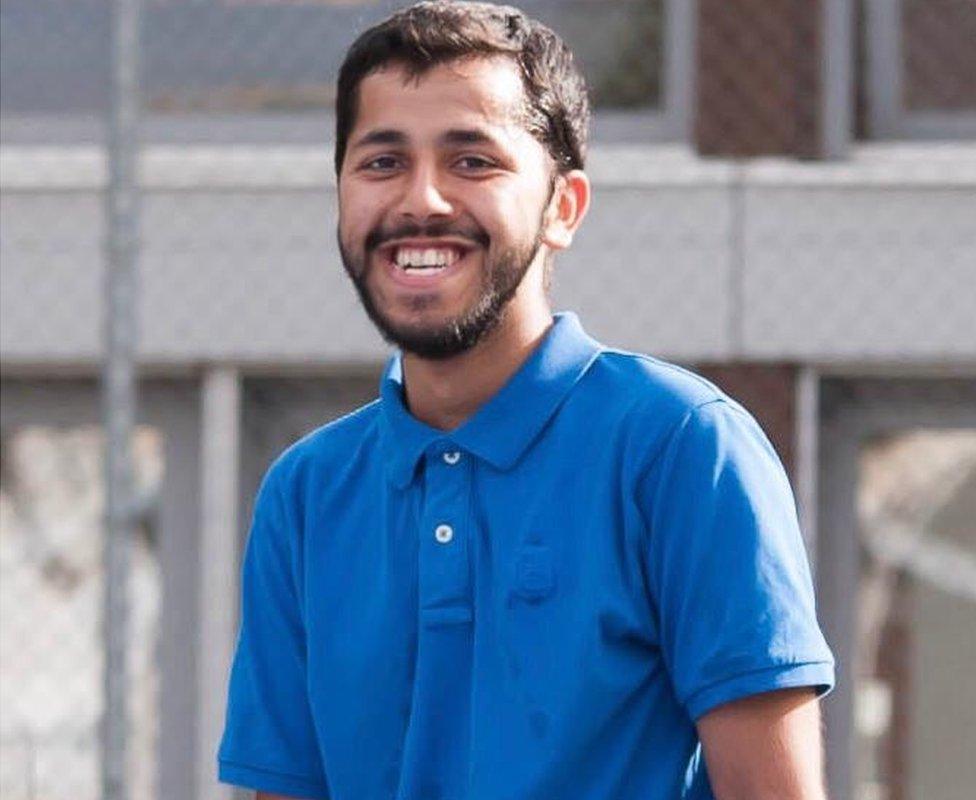
Bilal is concerned by a culture of fear that has grown in society
"It's never been so bad," Bilal says.
He feels comments made by Prime Minister Boris Johnson in the past have encouraged people in society to be Islamophobic.
"The lack of consequences for comments he's made speaks volumes. And because of the power he now holds in office, there is legitimacy in whatever he says."
He feels Islamophobia has an impact on his everyday life and now takes protective measures when using the tube, after hearing of incidents where Muslims have been targeted on train platforms.
"I don't get close to the yellow line until the doors fully open, just in case."
"It's worrying because you don't want to live in that kind of society."
Boris Johnson has apologised for the "hurt and offence" that has been caused by Islamophobia in the Tory Party.
The chief rabbi, Ephraim Mirvis, and the Muslim Council for Britain have both urged people to vote with their conscience, while emphasising it's not their place to tell people how to vote.
Boris Johnson apologises for "the hurt and offence that has been caused"
'Religion and politics are separate'
Aaminah Saleem, 18, is Muslim, a member of the Conservatives and planning to vote for the party.
She says it's been "a struggle to put aside my feelings", but "religion and politics are separate right now".
"It's not hard for me to vote Conservative but at the back of my mind there are moral issues."
"I'm trying to set them aside and focus on my local candidate; I'm sort of separating the national party from my local one."
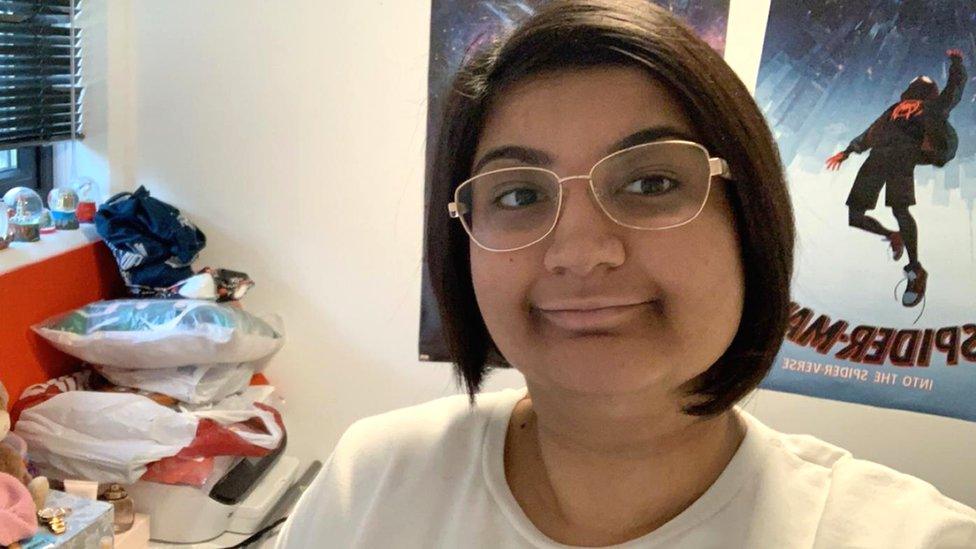
Aaminah is voting in her first general election
The University of Birmingham student tells Newsbeat: "I know we have a problem [with Islamophobia]. I think our two main parties have discrimination issues and the election has highlighted what a serious problem it is."
"Both policies and my faith are very important, but for me, if I was to vote for Labour there would be moral problems as well."
Aaminah says she's always felt welcome in the Conservatives.
"Most of my experience in the party has been positive, I've never felt my religion has disadvantaged me".
'It becomes political point scoring'
Aaminah, Josh and Bilal are all concerned by the parties' records when dealing with minority groups.
Josh says the Conservatives record on Islamophobia will "definitely impact" his vote.
Being able to live a normal life "without fear of intimidation or abuse" is his main priority.
"I'd definitely put that above any issues like Brexit or climate change. I care about each party's record and how they deal with religious groups."
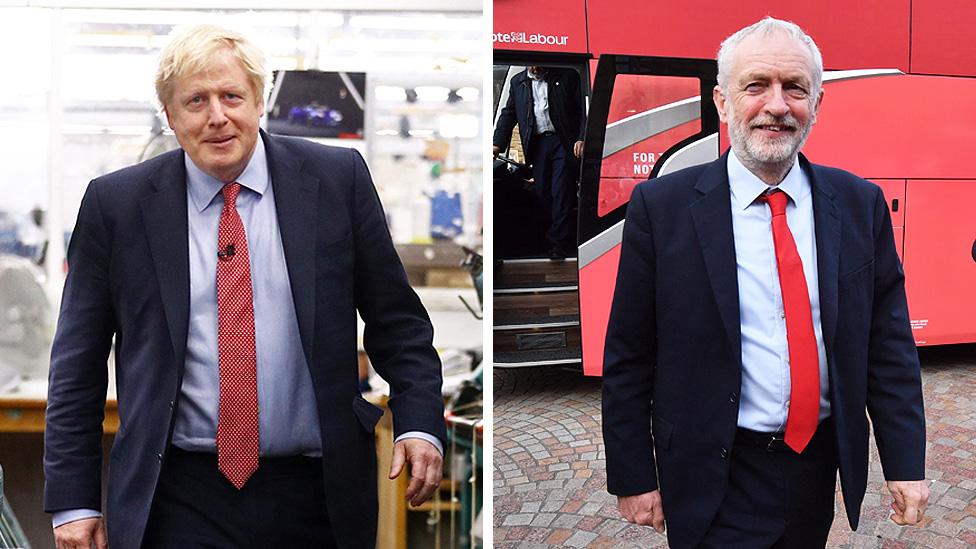
Bilal is unimpressed by Boris Johnson and Jeremy Corbyn, saying both have major flaws. But other issues hold weight for him too.
"In an ideal world, you want leaders who are amazing and accepting. So alongside Islamophobia, things like education and the NHS will also play a role."
He says he'll most likely vote Labour as "their vision resonates more with me than what the Conservatives are offering".
While Tory voter Aaminah wishes the issue of racism hadn't been "politicised".
"Once you politicise an issue, like Islamophobia and anti-Semitism, you forget that there's a human problem behind it and it becomes political point scoring."


Follow Newsbeat on Instagram, external, Facebook, external, Twitter, external and YouTube, external.
Listen to Newsbeat live at 12:45 and 17:45 weekdays - or listen back here.
- Published7 December 2019
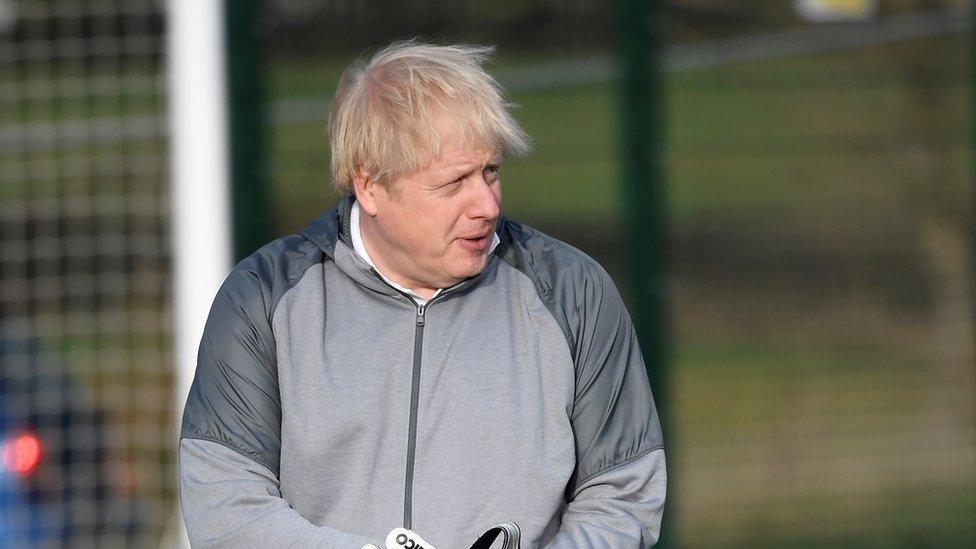
- Published27 November 2019
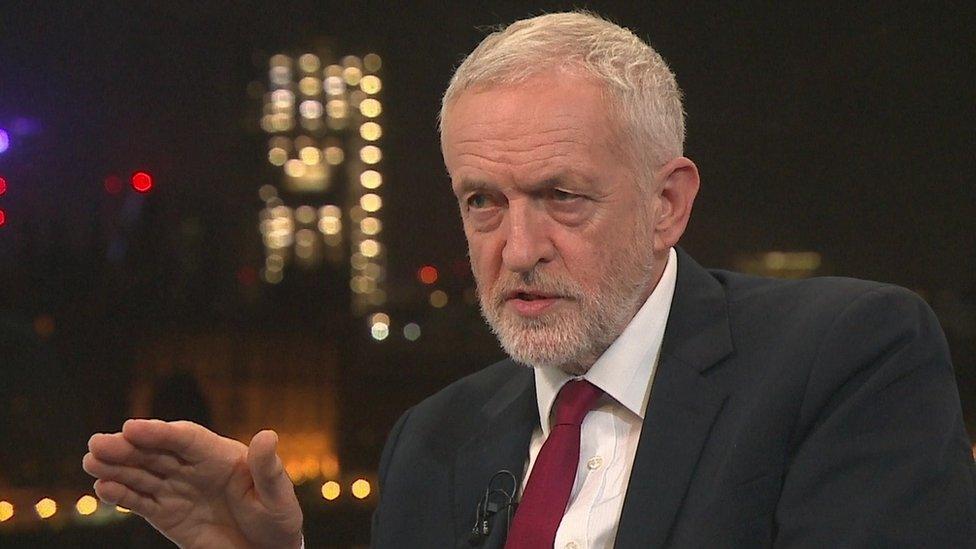
- Published27 November 2019
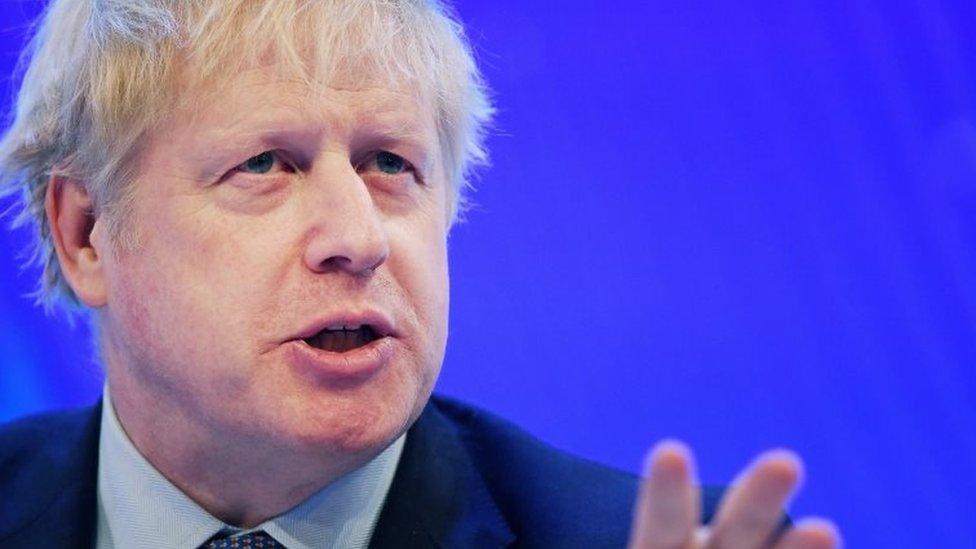
- Published5 December 2019
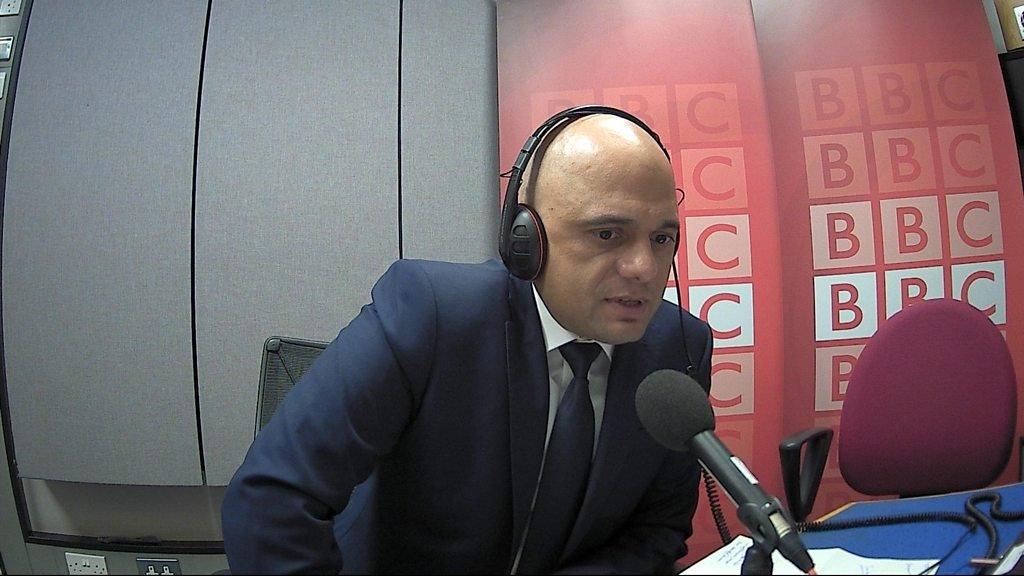
- Published3 December 2019
